What foods should I eat and avoid if I have dry eyes?
Nutrition is very important for eye care and preventing dry eyes. So what foods should you eat and avoid to protect your eye health?
Just like regular eye exams, practicing eye hygiene, or maintaining prescription glasses, diet is important in protecting eye health. Fueling your body with the right nutrients can help your vision and prevent eye diseases, including dry eyes.
1. The importance of diet for people with dry eyes
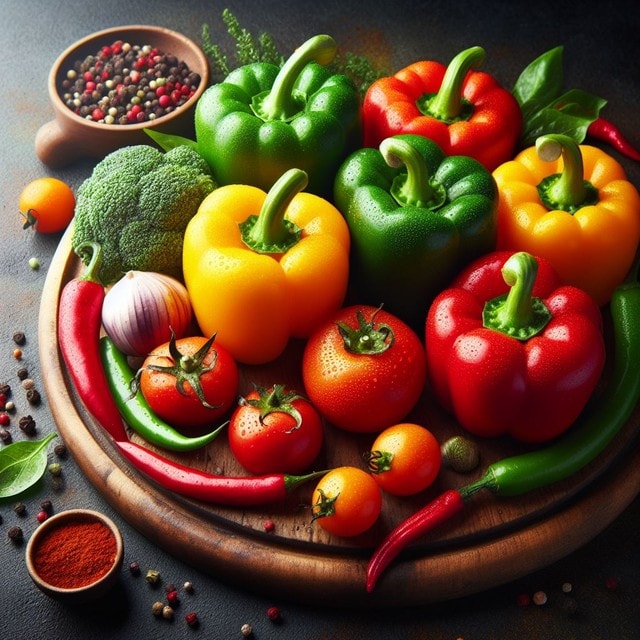
Dry eye is a condition that affects the eye's ability to lubricate. It occurs when the eye cannot produce enough tears, tears are produced too little, or tears of poor quality, or tears evaporate too quickly to keep the eye hydrated. This leads to irritation, damage, and infection of the eye. It causes a number of eye symptoms, including burning, redness, itching, and blurred vision.
A diet rich in omega-3 fatty acids, whole foods, and antioxidants can help prevent or reduce dry eye symptoms. Understanding which foods to eat more of and which to limit can help improve dry eye.
Many people experience dry eye at some point, but it most commonly affects women and adults over 50. Other factors also influence the risk of developing dry eye, including a diet low in certain vitamins and nutrients.
Several studies have established a link between dry eye syndrome and diet. Certain nutrients, including vitamins and minerals, help maintain overall eye health and alleviate dry eye symptoms. However, people with dry eye should not replace medical treatment with supplements or dietary changes without consulting a doctor.
2. Essential nutrients for people with dry eyes
Omega-3 fatty acids
Omega-3 fatty acids offer many potential health benefits, including reducing symptoms of chronic dry eye.
According to a 2019 meta-analysis, omega-3 supplements may help reduce dry eye symptoms. Although the study focused on supplements, eating a diet rich in omega-3 fatty acids may also be helpful. However, not all omega-3 fatty acids are beneficial. Research shows that only eicosapentaenoic acid (EPA) and docosahexaenoic acid (DHA) can reduce dry eye symptoms when people take them in high doses as prescribed by a specialist.
These specific fatty acids are found only in fatty fish such as salmon, mackerel, tuna, and sardines. However, to be effective, people with dry eyes should use supplements or adopt a diet that includes regular fish consumption or the Mediterranean diet.
Probiotic
Probiotics are often found in fermented foods or as dietary supplements. Probiotics can help maintain a healthy gut microbiome. The gut microbiome is made up of millions of different bacteria and other living organisms that support a variety of functions, including digestion.
According to a 2020 study, the gut microbiome may offer some potential benefits for people with dry eyes and other health problems. Researchers note that consuming a variety of probiotics helps create a well-balanced gut microbiome that can support tear production. Some foods that contain probiotics include: yogurt, sauerkraut, sourdough bread, miso…
It is important to note that while probiotic-rich foods are helpful, eating foods containing probiotics may not have the same effect on eye health as probiotic supplements. If a doctor prescribes or recommends probiotics, people with dry eye should follow their doctor’s advice and not try to replace supplements with dietary changes.
Vitamin A
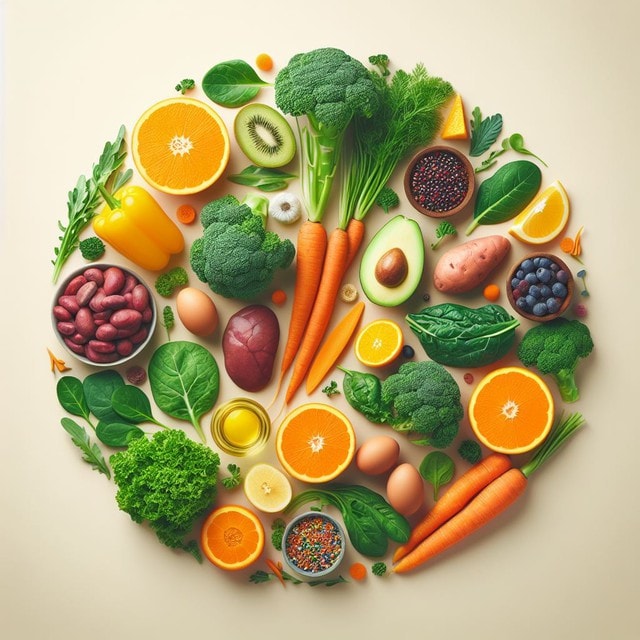
Vitamin A is a fat-soluble vitamin that occurs naturally in orange fruits and vegetables, as well as certain animal sources, such as milk, eggs, and organ meats. Vitamin A helps with overall eye health and tear production.
A 2019 study reported improved tear quality in people with dry eyes who supplemented with vitamin A.
Foods rich in vitamin A include many orange fruits and vegetables such as carrots, oranges, and sweet potatoes. These sources contain a substance called provitamin A, which the body must convert into vitamin A in the intestine. Animal sources of vitamin A, such as dairy products, eggs, and organ meats, provide preformed vitamin A, meaning the vitamin is fully formed. Multivitamins also often contain vitamin A in its provitamin form.
Zinc
Zinc is a mineral found in many foods that helps protect the eyes from light and promotes retinal health.
People interested in adding more zinc to their diet can eat foods such as: beans, cereals, lean red meat, oysters, poultry... If you want to supplement zinc, people with dry eyes should consult a doctor.
Vitamin E
Vitamin E is a fat-soluble antioxidant that can improve overall eye health and protect the eyes. A 2016 study found that antioxidant supplements containing vitamin E improved tear film stability.
Foods that provide vitamin E include red peppers, peanuts, almonds, wheat germ oil, and pumpkin.
Zeaxanthin and lutein
Zeaxanthin and lutein are two antioxidants that can support overall eye health. These nutrients are found in a variety of foods, including brightly colored fruits and vegetables, such as grapes, leafy greens like kale, spinach, collard greens, and eggs.
Vitamin C
Vitamin C is a water-soluble vitamin that helps treat many health conditions, including dry eyes. It may help maintain tear production.
Foods containing vitamin C include cabbage, citrus fruits such as lemons, oranges, bell peppers, broccoli…
3. Foods people with dry eyes should eat
Fish
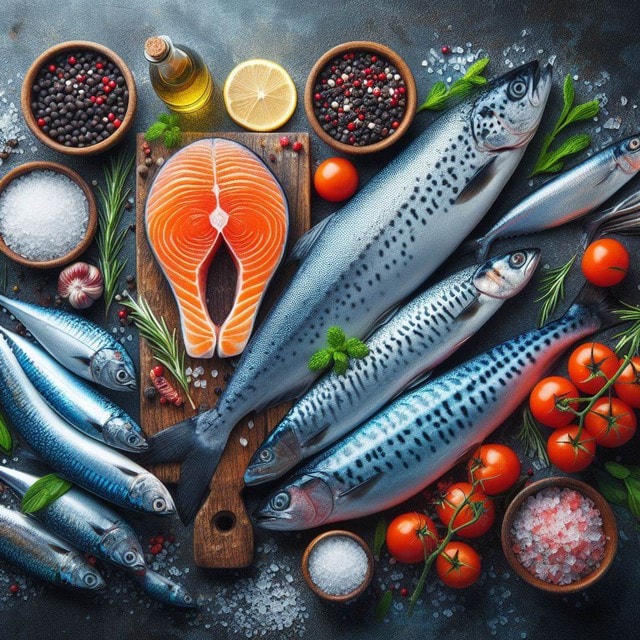
Fish is a source of omega-3 fatty acids. Fatty acids are essential for visual development and retinal function. Consuming omega-3 fatty acids can reduce the risk of dry eye by 17%. Additionally, omega-3 reduces inflammation in the eyes and promotes the production of meibomian glands, which are responsible for creating the eye's lubricating layer (reducing tear evaporation). Some of the best fish for omega-3 fatty acids are: cod, herring, salmon, sardines, tuna.
However, if you don't like fish, nutritionists often recommend taking omega-3 supplements.
Fatty fish also contain vitamin D. Although the body absorbs some vitamin D through sunlight, it is easier to get vitamin D through diet or supplements. Research shows that low vitamin D levels increase the risk of dry eye. Additionally, vitamin D deficiency can reduce tear production, which can worsen dry eye symptoms.
Sweet potato
Sweet potatoes have many surprising health benefits, largely due to their antioxidants. They are also rich in fiber, vitamins, and minerals. Sweet potatoes have more than 200% of the recommended daily intake of vitamin A. Consuming foods rich in vitamin A (or taking supplements containing vitamin A) can improve the quality of your tears and reduce the symptoms of dry eye disease.
Carrot
Carrots contain nutrients essential for eye health. Carrots are rich in vitamin A and beta-carotene. Beta-carotene is what gives carrots their bright orange color. It also helps the body produce vitamin A naturally.
Avocado
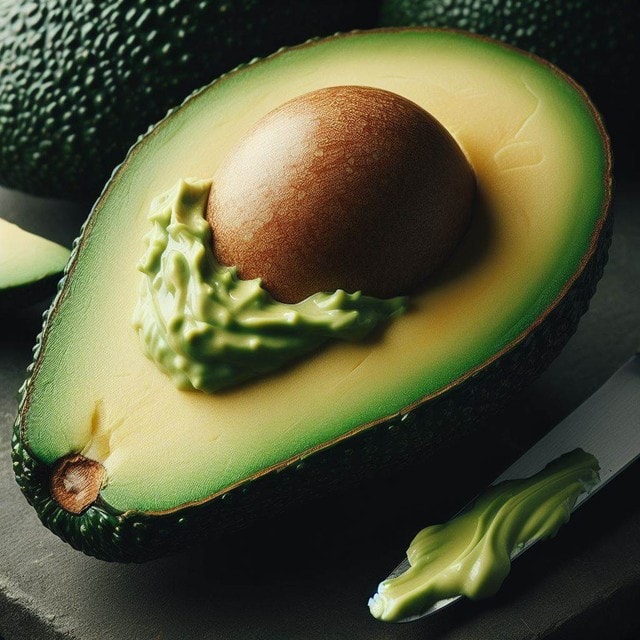
Avocados are a rich source of nutrients that most people lack in their diets, including magnesium, B6, vitamin C, vitamin E, folate, and potassium. Many of the nutrients in avocados are essential for eye health and support of the tear film.
Potassium and magnesium are components of the electrolytes in tears. Electrolytes are what give tears their salty taste. Without salty tears, the eyes would lack the moisture and nutrients to support the cells.
Avocados are rich in antioxidants and anti-inflammatory compounds, including the carotenoid lutein. These help protect against oxidative damage and the progression of many chronic diseases. Antioxidants also help protect brain and heart health.
Egg
Eggs, whether steamed, boiled, or scrambled, are a nutritious treat. Eggs are a good source of lutein, zeaxanthin, vitamin C, vitamin E, and zinc. The antioxidants lutein and zeaxanthin are recommended by the American Optometric Association (AOA) because large amounts of these antioxidants are found in the retina. They may also help prevent a variety of eye problems, including cataracts, UV damage, and dry eyes.
Citrus fruits
Citrus fruits contain vitamin C, an antioxidant recommended by the AOA to protect vision and prevent eye diseases. Vitamin C is also a component of the tear film, supporting lubrication and promoting tear production. Some citrus fruits include: oranges, grapefruits, lemons, etc.
Broccoli
Broccoli is a nutrient-dense food. It is rich in antioxidants and vitamin C, vitamin E, lutein, and zeaxanthin.
Green leafy vegetables
Green leafy vegetables, especially spinach and kale, are packed with vitamins, nutrients, and minerals that are important for overall health. Some of the best for eye health and reducing dry eyes include lutein, zeaxanthin, and vitamin C.
Bell pepper

Bell peppers are juicy, delicious, and high in vitamin C. However, they are best eaten raw, as cooking destroys vitamin C. Brightly colored bell peppers like red, orange, and green are also good sources of vitamin A and vitamin E.
Bean
Beans like black-eyed peas, kidney beans, and lima beans can add a variety of healthy nutrients to your diet, including B vitamins and zinc. The mineral zinc is how your eyes receive vitamin A from the liver, which keeps your retina healthy and protects your eyes from light damage.
However, zinc also reduces the amount of copper needed for red blood cell production in the body, but beans have zinc and copper which help promote eye health and maintain blood cells.
Nuts
Nuts are rich in omega-3 fatty acids. They also contain high levels of vitamin E, an important component that helps prevent the breakdown of healthy eye tissue. Nuts that are good for eye health include hazelnuts, cashews, and walnuts.
Zucchini and pumpkin
Zucchini is a good source of vitamin C and zinc, while pumpkin provides vitamin A, C, and omega-3s. Additionally, zucchini provides lutein and zeaxanthin to the diet.
Nuts
Nuts are a rich source of omega-3s and vitamin E, both of which are essential for eye health, making them helpful in managing dry eye symptoms.
Some seeds that are high in omega-3s include chia seeds and flax seeds. Additionally, sunflower seeds and almonds are high in vitamin E.
Water
Water is not a food, but it is essential for nutrition. Staying hydrated maintains and protects the body. From lubricating joints to regulating body temperature, water is everywhere in the body.
Water is also the most abundant component of tears. Water makes up 98% of tears, 2% contains oil, electrolytes and proteins. That 2% is important to nourish the eyes and prevent tear evaporation so adequate water is needed to maintain tear volume.
4. Foods people with dry eyes should avoid
Onion, garlic and hot pepper
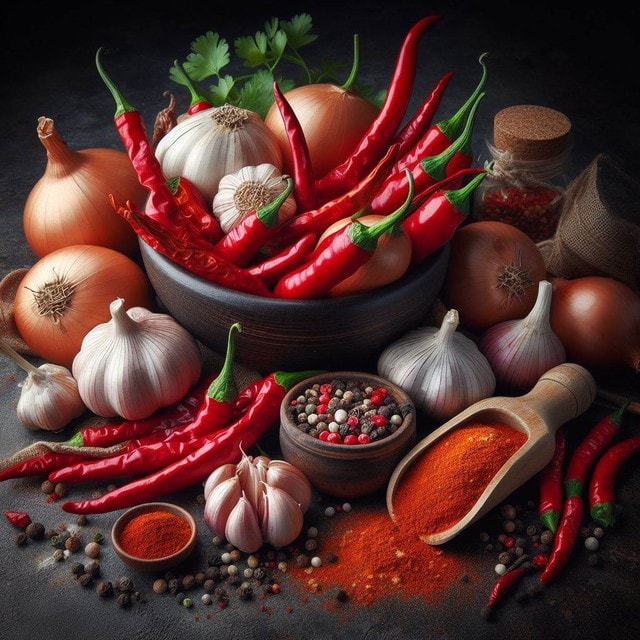
The effects of these hot spices will irritate the nerves, including the optic nerve, making dry eyes even drier, causing pain and reduced vision, affecting the recovery process.
Stimulant
Stimulants such as cigarettes, alcohol, etc. have a great impact on dry eye disease. Not only that, alcohol, beer and cigarette smoke are also the cause of dry eye. These foods not only damage the lacrimal glands but also stimulate the secretion of urine, causing the body to lose water quickly, thereby reducing both the quality and quantity of tears.
Salty foods
When consuming foods that are too salty when suffering from dry eyes, the body will increase urine excretion and lack the amount of water needed for the tear production process. This will aggravate the patient's dry eye condition. Therefore, patients need to pay attention to the amount of salt used during the day.
Foods with too much sugar
Eating foods high in sugar over a long period of time can lead to increased blood sugar levels. This can damage the retina and macula, impair eye function, and worsen dry eye.
Processed foods
Processed foods rich in saturated fat such as french fries, sausages, sausages, etc. all have the risk of disrupting the metabolism of the eye, significantly reducing the amount of tears secreted and worsening dry eyes. Not only that, regularly consuming these foods can increase the number of free radicals in the body, accelerate the aging process of the eyes, worsen dry eyes, cause blurred vision and even vision loss.
If dietary changes do not improve dry eye symptoms, an ophthalmologist should be consulted to evaluate the diet and address the underlying causes of dry eye symptoms./.


